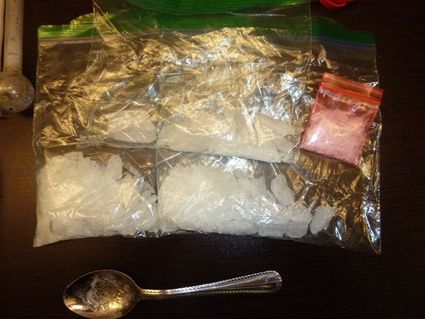
- Details
- By Darren Thompson
MINNEAPOLIS —Three members of the Native Mob gang were sentenced to federal prison on Wednesday for acts of violence and distribution of methamphetamine to several communities in northern Minnesota including the Leech Lake and Red Lake Indian Reservations.
Robin Lee Lussier, 32, Willard Duane Reed, III, 26, and Joshua Adam Hanks, 25, were active members of the Native Mob, a regional criminal organization established in Minneapolis in the early 1990s. According to court documents, between December 1, 2015 and January 1, 2019, Lussier and Reed led a conspiracy to distribute large quantities of methamphetamine throughout northern Minnesota, including the Leech Lake and Red Lake Indian Reservations.
Want more Native News? Get the free daily newsletter today.
In November 2018, Lussier directed Hanks to assault another individual in the Native Mob for failing to abide by rules. Hanks admitted to authorities that on Dec. 5, 2018, he intentionally assaulted an individual within the Native Mob to maintain or increase his own position within the criminal enterprise.
All three individuals pleaded guilty for various crimes including conspiracy to distribute methamphetamine, assault resulting in serious bodily injury in aid of racketeering activity, and aiding and abetting assault resulting in serious bodily injury in aid of racketeering activity. Lussier was sentenced to 192 months in prison followed by five years of supervision. Reed was sentenced to 120 months in prison followed by five years of supervision. Hanks was sentenced to 30 months in prison followed by three years of supervision.
In the past few years, gang activity has increased on Indian Reservations and in federal and state prison systems throughout the United States, according to Bureau of Justice Statistics.
According to the Federal Bureau of Investigation (FBI), the Native Mob originated in Minneapolis in the early 1990s. Members engaged in drug trafficking, assault, robbery, and other violent crime including murder. With membership estimated at more than 200, the Native Mob is considered one of the largest and most violent Native American gangs in the United States and is most active in Minnesota and Wisconsin.
Some gangs in Indian Country utilize Indian Reservations to facilitate and expand their criminal operations, which are mainly related to drugs. Some of the most violent crimes in recent years in Minnesota have been committed by admitted members of the Native Mob, including a 29-year-old man who was sentenced to more than nine years in federal prison for shooting his sister's boyfriend in the back of the head at a funeral on the Fond du Lac Reservation in 2019. Also in 2019, a Fond du Lac Ojibwe man was sentenced to 30 years in federal prison for an attempted murder of a witness. The witness was shot in the back in October 2017 as retaliation for testifying against Native Mob gang members in a racketeering trial in 2013.
The United States Attorney’s Office was unavailable for comment as of press time. The Red Lake Tribal Police Department, which assisted in the investigation, was unavailable for comment.
More Stories Like This
Native News Weekly (August 25, 2024): D.C. BriefsNavajo Nation Mourns the Passing of Former Vice President Rex Lee Jim
Deb Haaland Earns Endorsement From Communications Workers of America Local 7076
University Soccer Standout Leads by Example
Two Native Americans Named to Democratic Congressional Campaign Committee's“Red to Blue” Program
Help us defend tribal sovereignty.
At Native News Online, our mission is rooted in telling the stories that strengthen sovereignty and uplift Indigenous voices — not just at year’s end, but every single day.
Because of your generosity last year, we were able to keep our reporters on the ground in tribal communities, at national gatherings and in the halls of Congress — covering the issues that matter most to Indian Country: sovereignty, culture, education, health and economic opportunity.
That support sustained us through a tough year in 2025. Now, as we look to the year ahead, we need your help right now to ensure warrior journalism remains strong — reporting that defends tribal sovereignty, amplifies Native truth, and holds power accountable.
 The stakes couldn't be higher. Your support keeps Native voices heard, Native stories told and Native sovereignty defended.
The stakes couldn't be higher. Your support keeps Native voices heard, Native stories told and Native sovereignty defended.
Stand with Warrior Journalism today.
Levi Rickert (Potawatomi), Editor & Publisher
